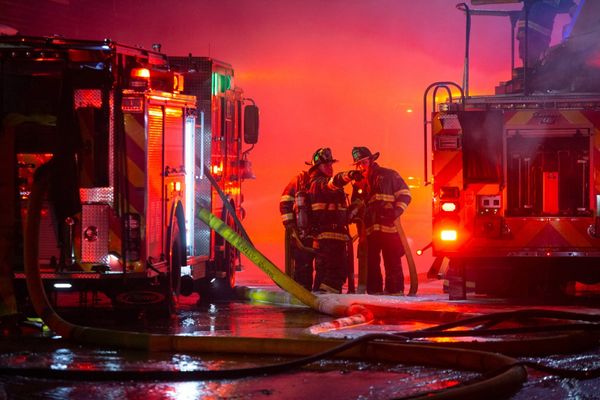
Schools should “assess and balance” the risk of a potential strip-search to a pupil’s mental and physical wellbeing before calling the police, according to new government guidance.
The new advice for schools in England has been issued following national outcry over the treatment of a 15-year-old black girl, known as Child Q, who was strip-searched by female police officers in 2020 after she was wrongly suspected of carrying cannabis at her school in east London.
The incident prompted days of protests in Hackney after it emerged the child was searched without an appropriate adult present and in the knowledge that she was menstruating. Her parents were not contacted.
The new Department for Education (DfE) guidance, published on Wednesday, says in such circumstances school staff must retain a duty of care to the pupil and should advocate for their wellbeing at all times.
It also says school staff should consider whether triggering a possible strip-search by police is “absolutely necessary” and ensure that all other “less invasive” approaches have been exhausted first.
A local child safeguarding practice review, conducted by City & Hackney Safeguarding Children Partnership (CHSCP) and published in March, concluded the strip-search of Child Q was unjustified and that racism “was likely to have been an influencing factor”.
It said school staff should have been more challenging to the police and called on the DfE to “urgently revise” its guidance to school staff. The review found that Child Q had been traumatised and required therapy after having had to expose intimate body parts during the search.
The Metropolitan police said the actions of its officers were “regrettable” and “should never have happened”. A number of other cases where children have been strip-searched have since been referred for independent investigation.
The new DfE guidance, which aims to offer step-by-step guidance, states: “While the decision to undertake the strip-search itself and its conduct are police matters, school staff retain a duty of care to the pupil[s] involved and should advocate for pupil wellbeing at all times.
“Before calling police into school, staff should assess and balance the risk of a potential strip-search on the pupil’s mental and physical wellbeing and the risk of not recovering the suspected item.”
It adds: “Staff should consider whether introducing the potential for a strip-search through police involvement is absolutely necessary, and should always ensure that other appropriate, less invasive approaches have been exhausted.
“Once the police are on school premises, the decision on whether to conduct a strip-search lies solely with them, and the role of the school is to advocate for the safety and wellbeing of the pupil(s) involved.”
The guidance, which comes into force in September, adds that where possible staff should inform parents in advance of any search. At least two other people, one of whom must be an appropriate adult, must be present for a strip-search involving exposure of intimate body parts, except in cases where there is risk of serious harm to the pupil or others.
Pupils should be given appropriate support following a strip-search, even if a suspected item is found. “If an item is found, this may be a police matter, but should always be accompanied by a safeguarding process handled by the school which gives attention to the pupil’s wellbeing and involves relevant staff, such as the designated safeguarding lead (or deputy).”
The End Strip Search Coalition said: “There would not be any need for the guidance around strip searches if it had not been for the repugnant removal of a child’s dignity in the first place.
“This guidance will do nothing to change the culture of deference between schools and police officers. Teachers continue to be cast as observers, which is typical of the culture that enabled the strip search of Child Q.”







